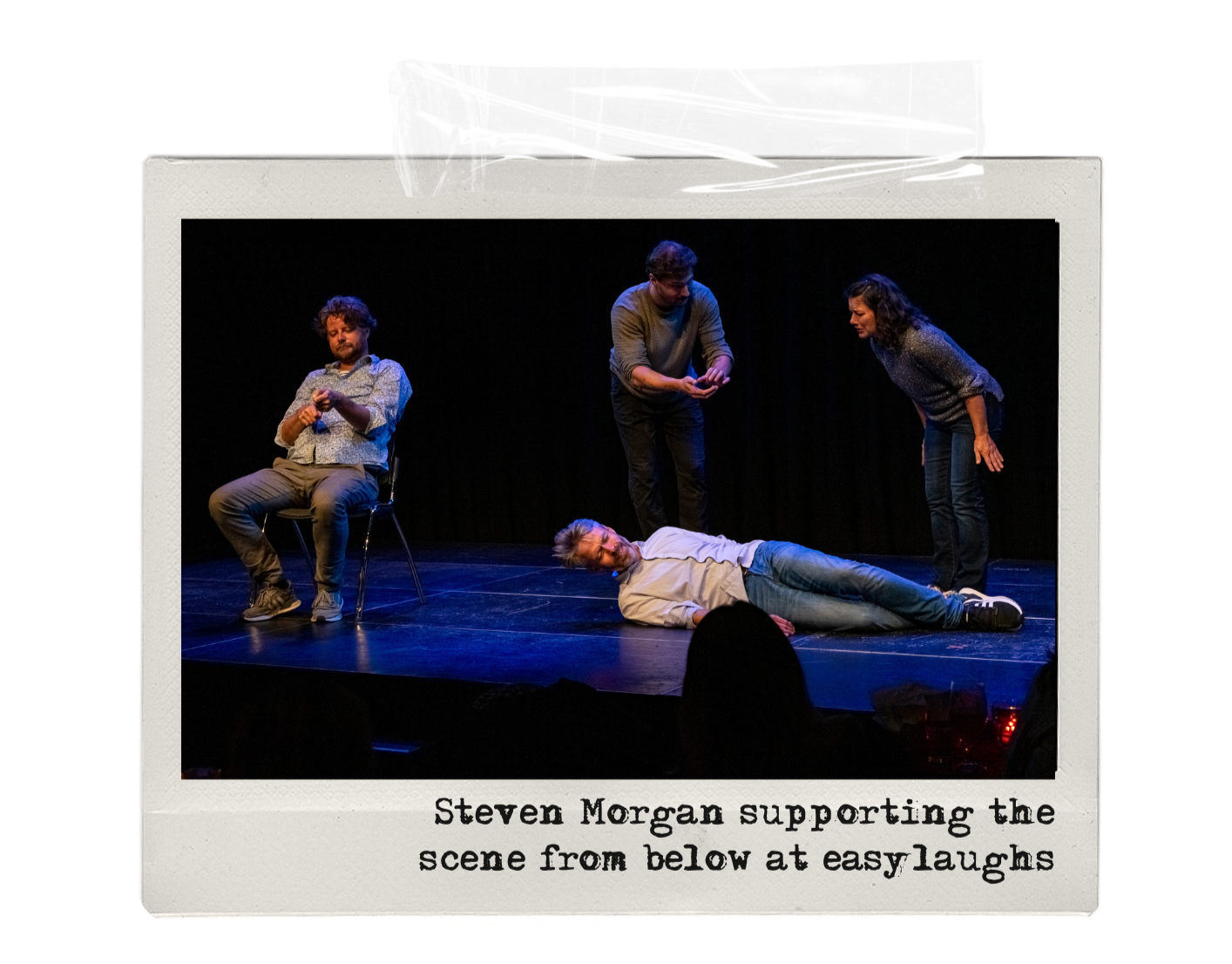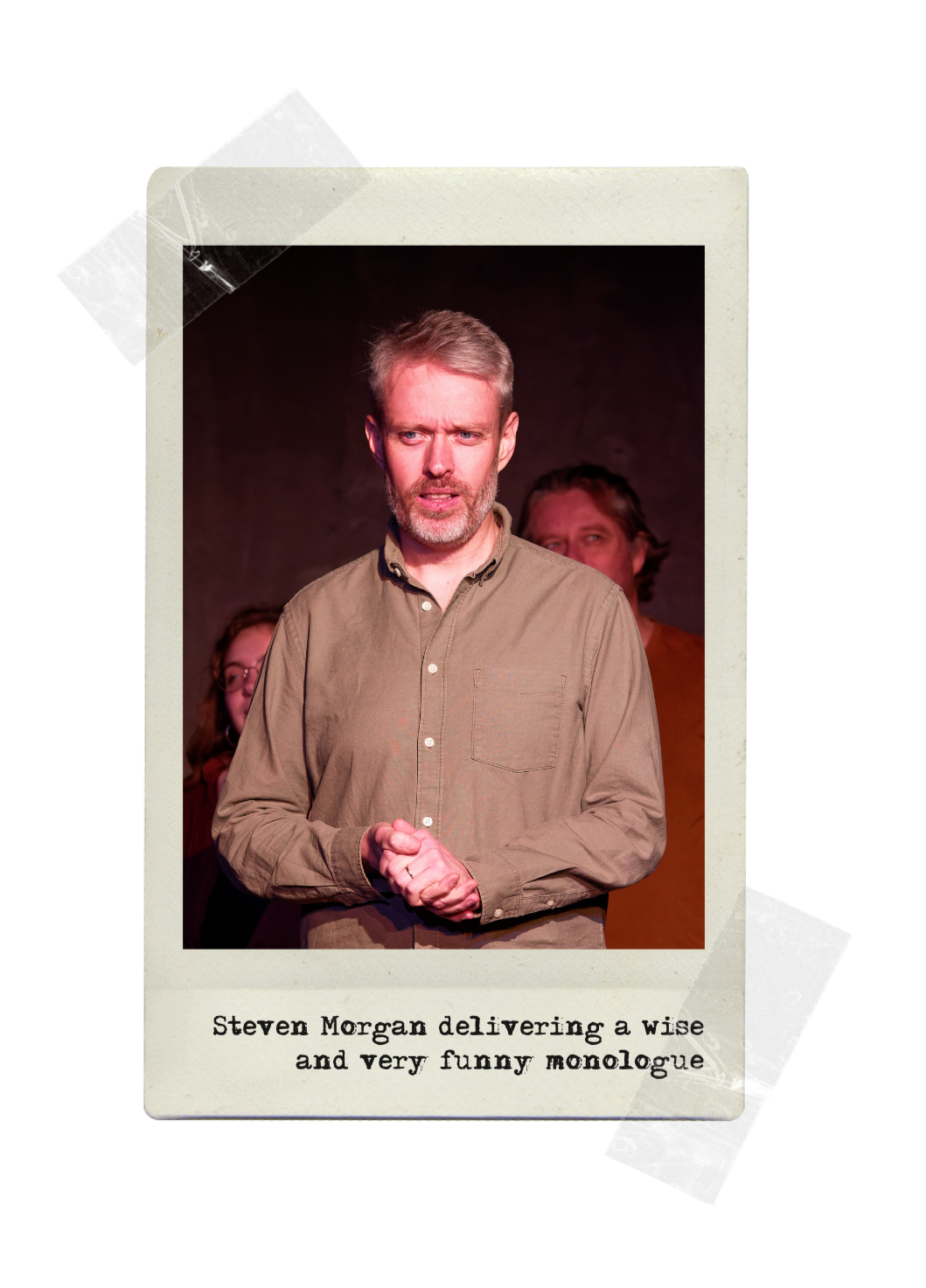Use your privilege - A guest article by Steven Morgan
IMPRO Amsterdam wouldn’t be the giant, awesome festival that it is without heaps of folks contributing their talents, energy, and unique perspectives year after year. Also, we don’t want to spend every waking moment blogging. For those two reasons (mostly the first), we’ve opened our Newsroom to guest writers! Here’s a phenomenal piece by improviser, writer, comedian, character genius, and all around wizard Steven Morgan.
For as long as I can remember, I have been a white, native English-speaking man. As a result, my life has been easier than the vast majority of the world’s population. This shouldn’t be controversial.
Most of the time, people don’t notice when they’re benefiting from the system. That’s how privilege works. Acknowledging it means recognising that some paths are smoother than others and that if yours is, you probably didn’t lay all the stepping stones yourself.
And just like in life, privilege shows up in improv in subtle and not-so-subtle ways.
Improv amplifies what’s already broken about privilege
Who feels confident stepping into the spotlight without second-guessing themselves? Who gets cast as the leader, the love interest, the “normal” one? Whose ideas are welcomed, and whose are interrupted or ignored?
Privilege in improv often means not having to answer these questions so explicitly.
You think you're just being you when actually, you’re being given more room to breathe, more benefit of the doubt, more applause for less effort. The danger is that we mistake this for merit. That we believe we’re simply more talented, more confident, more naturally funny when in reality, we’ve just had more chances to practise without the same penalties for failure.
This matters on stage because improv is a team sport. It’s about listening, supporting, and building together. If some people are always on the back foot, always cleaning up messes or justifying their presence, then we are not playing as equals.
Worse, if we fall back on lazy, harmful stereotypes (about race, gender, class, sexuality, disability, religion), even under the excuse of “satire” or “it’s just a character,” then we’re not doing art. We’re just amplifying what’s already broken.
If you’re someone who regularly finds yourself with power in a room, whether that’s as a teacher, performer, director, or just someone who gets listened to, then you have an opportunity. More than that, you have a responsibility.
How IMPRO Amsterdam challenged me as a performer and person
I was part of the IMPRO Amsterdam cast in 2025 and 2024, playing alongside some of the best local and international performers, something I’m genuinely honoured to have been chosen for.
I shared the stage with people who brought perspectives shaped by different cultures, lived experiences, and schools of improv. It challenged me, inspired me, and helped me grow not just as a performer but as a person. I saw scenes shaped in ways I never would have considered, simply because someone had a worldview different to my own.
That, to me, is one of the real strengths of Impro Amsterdam: it brings together teachers, players and directors from a wide range of backgrounds to create something richer, more surprising, and more human than any one style or voice ever could.
Pragmatic ways to make a difference
Speak up when something feels off
If you see a scene reinforcing a damaging trope, don’t wait for the person on the receiving end to say something. They may not feel safe or supported enough to do so. Calling it out doesn’t mean you’re accusing someone of being a bad person; it means you’re noticing something that could harm the room and choosing not to let it slide.
Interrupt stereotypes before they harden into scenes
The early moments of a scene are full of potential, and the choices we make can either reinforce the world as it is or reshape it. If someone sets you up to play a tired or offensive caricature, you don’t have to go along with it. You can shift the direction, challenge the framing, or offer a better, bolder alternative.
Step aside when your voice isn’t needed
If you’re often the loudest in the room, try being the quietest for a while. Make conscious space for others to speak, initiate, and lead. If you're regularly chosen for high-visibility roles, consider whether someone else could benefit more from the spotlight this time.
Recommend performers and teachers from underrepresented backgrounds
Your voice carries weight. Use it to amplify people who aren’t always heard. Don’t just “diversify” when asked to; actively seek out and champion voices that expand the edges of your scene or festival. It’s not about charity, it’s about strengthening the art form through range and richness.
Reflect on how you got here
Be honest about the support systems, connections, and freedoms that helped you progress. None of us succeeds in isolation, and the myth of the purely self-made performer is just that, a myth. The more aware you are of what made things easier for you, the better you’ll understand what others are still up against.
Build the stage together
This work is uncomfortable. It requires self-reflection, humility, and often a willingness to be wrong. It’s also deeply worthwhile. Because when improv is at its best, generous, daring and inclusive, it becomes more than entertainment. It becomes a connection. That only happens when everyone feels welcome to play.
So if you, like me, have benefited from privilege, don’t just notice it. Use it. Use it to call things out. Use it to call others in. Use it to make space. Use it to change the tone of the room.
Not because you’re the hero, but because you’re part of the cast and we’re only as strong as the stage we build together.
About the writer
Steven Morgan is a familiar face in the Dutch improv scene. From performing as a cast member and serving as Chief of Learning at easylaughs, to teaching with schools like Improv Utrecht and playing with the dramatic ensemble Could They Be Wrong?, Steven brings experience and versatility to the stage.
His improv journey began in Australia with Brisbane’s ImproMafia, where he performed in multiple sold-out shows at the Brisbane Comedy Festival and he's been building on it ever since.
Beyond improv, Steven has performed in the band Neon Highwire and was festival director of the Bris Funny Fest in Australia. He’s also a prolific writer, with work published by outlets such as the BBC, Drowned in Sound, and Consequence of Sound.





